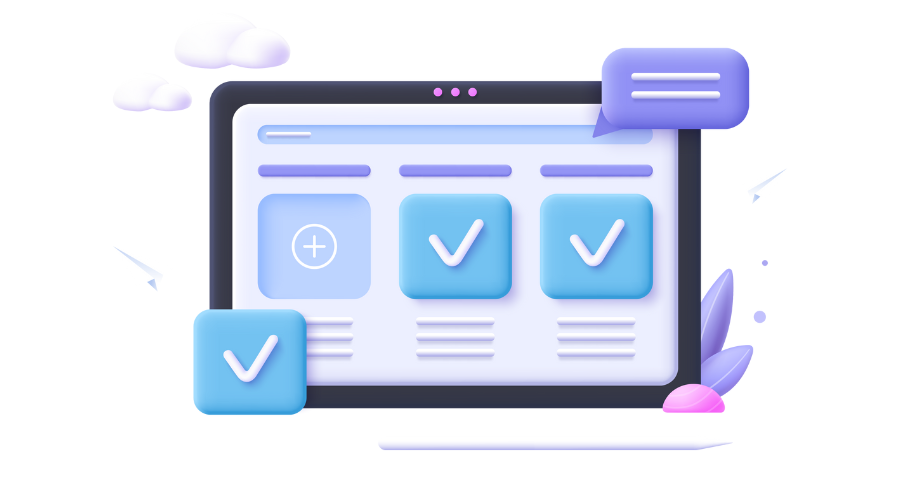Event management is an exciting yet complex process. Whether it’s a corporate conference, a wedding, or a charity gala, event management requires juggling numerous tasks simultaneously. The challenges often include staying within budget, managing logistics, coordinating with vendors, promoting the event, and keeping track of timelines. According to a survey by EventMB, 49% of event planners cite time management as one of their biggest challenges, while 40% say managing event budgets is a key concern. Without a structured approach, the process can quickly become overwhelming, which is where an event management template comes in handy.
A well-designed event management template simplifies the entire process, ensuring no critical detail is overlooked. It not only helps to organize tasks effectively but also ensures that your team stays aligned, significantly reducing the time and stress involved in planning. In this article, we’ll explore the importance of using a template, key components to include, and how to leverage it for successful event execution.
What is Event Management?
Event management is the comprehensive process of planning, organizing, and executing an event, regardless of its size or scale. It involves a wide range of activities, from establishing clear goals and objectives to managing budgets, coordinating logistics, overseeing vendor relationships, and ensuring the overall attendee experience is engaging and seamless.
The process begins with defining the purpose and scope of the event, which might include everything from corporate conferences, product launches, and seminars to weddings, festivals, or charity fundraisers. Once the objectives are set, detailed planning follows, including selecting the venue, creating schedules, organizing speakers or entertainment, managing registration, and promoting the event to the target audience.
Another key aspect of event management is logistical coordination. This includes arranging transportation, setting up equipment, catering, and ensuring all necessary materials and resources are in place. During the event, managers oversee the execution, troubleshooting issues in real-time, and ensuring that everything stays on schedule.
Beyond the logistics, event management also focuses heavily on the attendee experience, ensuring that those who participate feel valued, engaged, and satisfied with the event. After the event, post-event analysis is essential to evaluate the event’s success by reviewing feedback, measuring outcomes against goals, and analyzing areas for improvement.
Successful event management requires meticulous attention to detail and the ability to coordinate many moving parts. To simplify this complex process, an event management template can be a game changer, providing an organized system for tracking tasks, deadlines, and responsibilities. This ensures that no aspect of the event is overlooked, leading to smooth execution and a lasting positive impression on attendees. Proper planning not only helps meet the event’s objectives but also enhances brand reputation and builds stronger connections with stakeholders.
Importance of Planning an Event with a Template
An event management template is a powerful tool that helps streamline the event planning process. By using a structured template, planners can ensure that no important detail is missed and that all aspects of the event are accounted for, from pre-event preparation to post-event follow-up. Here are some key benefits of using an event management template:
☑ Ensures no detail is overlooked: Templates provide a comprehensive structure that covers all aspects of event planning, from budgeting to logistics.
☑ Keeps teams aligned: It helps in organizing tasks and assigning roles, ensuring that team members know their responsibilities and deadlines. Studies show that 89% of event planners believe that using templates or specialized event management software greatly improves team communication and alignment.
☑ Reduces time spent organizing: With a template, the foundational structure is already in place, allowing planners to focus on creativity and execution rather than administrative tasks. According to research by Social Tables, 55% of event planners save at least 5 hours per week by using templates or management software.
☑ Manages key aspects effectively: A template allows for better handling of tasks such as budget tracking, timeline management, and communications, reducing the chances of miscommunication or oversight.
Key Components of an Event Management Template
An effective event management template should cover all the critical aspects of event planning. Here are the essential components to include:
1. Event Goals & Objectives
Start by outlining the purpose of the event and the desired outcomes. These could include increasing brand awareness, raising funds for a cause, or fostering networking opportunities. Clearly defined goals help in creating a focused plan that meets the event’s overarching objectives.
2. Budgeting & Financial Planning
Managing the event’s budget is crucial. An event management template should allow you to track all expenses, including venue fees, catering, equipment, marketing, and any unforeseen costs. This will help you avoid overspending and ensure the financial success of your event. In fact, 40% of event planners report that managing event budgets is one of their biggest challenges, highlighting the need for structured budgeting tools.
3. Event Timeline
Breaking down the event planning process into key milestones is critical for staying on schedule. Your template should include a detailed timeline from pre-event preparation to post-event wrap-up. A survey from Eventbrite found that 46% of event planners say meeting timelines is one of the most difficult parts of the job, underscoring the importance of timeline management in a template.
4. Task Assignment & Delegation
One of the most challenging aspects of event planning is ensuring that tasks are properly assigned. The template should help you designate specific tasks and roles to team members, making sure that accountability is clear, and progress can be tracked easily. According to The Event Manager Blog, 57% of planners report that their biggest obstacle is coordinating tasks across teams, which can be mitigated with a well-structured task assignment section in the template.
5. Event Marketing & Promotion
Effective promotion is key to a successful event. Your template should include plans for marketing efforts such as email campaigns, social media outreach, and press releases. Statistics from HubSpot indicate that 68% of marketers see an increase in attendance when they use a multi-channel marketing approach, including email and social media.
6. Logistics & Venue Management
Managing logistics is another vital part of event planning. Your template should include sections for organizing details related to the venue, catering, equipment rentals, and transportation. This ensures that all logistical elements are accounted for and handled smoothly.
7. Attendee Management
From invitations to registrations and RSVPs, attendee management is critical. Your template should provide a framework for tracking all communications with attendees, including confirmation emails, ticketing, and post-event surveys. With 83% of event professionals using attendee management systems, ensuring this is streamlined in your template is vital for a seamless experience.
8. Post-Event Follow-Up
Once the event is over, the work doesn’t stop. The template should include sections for post-event tasks, such as sending thank you notes, collecting feedback from attendees, and analyzing event success through metrics and analytics. According to Bizzabo, 91% of event organizers say post-event surveys and analytics are key to improving future events.
Steps to Plan an Event Using the Template
Step 1: Set Clear Objectives
Define what you want to achieve with the event. Are you looking to generate leads, celebrate a milestone, or raise awareness for a cause? Clear objectives provide direction for all subsequent planning steps.
Step 2: Establish a Budget
Outline all potential costs, including the venue, catering, marketing, and any contingencies. Having a solid budget plan prevents overspending and ensures financial control throughout the planning process.
Step 3: Create a Detailed Timeline
Map out key milestones and deadlines. This will include booking vendors, finalizing guest lists, sending invitations, and ensuring everything is set well before the event day.
Step 4: Delegate Responsibilities
Assign roles and tasks to team members to ensure everything is covered. Use the template to keep track of who is responsible for each task and monitor their progress regularly.
Step 5: Promote the Event
Utilize email marketing, social media campaigns, and any other available platforms to build buzz around the event. According to Eventbrite, 79% of event organizers report increased engagement when promoting events across multiple platforms.
Step 6: Monitor Progress & Adjust
Check progress regularly and use your template to track task completion and adjust plans as needed. Stay flexible to account for any last-minute changes or unexpected challenges.
Step 7: Post-Event Review
After the event, collect feedback and analyze performance. Use surveys and analytics to gauge attendee satisfaction and identify areas for improvement for future events.
Benefits of Using a Template for Event Planning
Here’s why using an event planning template is essential for success:
☑ Efficiency and Time-Saving: A template provides a ready-made structure, allowing you to focus more on executing tasks than organizing them from scratch. Event planners who use templates report saving 5-10 hours per event compared to those who don’t.
☑ Ensures Every Element is Considered: With all event elements laid out in the template, no detail will slip through the cracks.
☑ Improved Collaboration: A template keeps the entire team on the same page, improving communication and reducing the chances of errors or mismanagement. 89% of event professionals agree that collaboration tools improve the success of their events.
☑ Better Event Execution: With clear timelines, budgets, and delegated responsibilities, you can ensure smoother event execution and a more seamless experience for attendees.
Conclusion
Event planning is a multifaceted process, but with the right tools, it can be simplified. Using an event management template is one of the most effective ways to ensure that no detail is missed and that your event is well-organized from start to finish. Whether you’re planning a small gathering or a large conference, a template will help you stay on track, meet your objectives, and ultimately deliver a successful event.
Take control of your event planning with Nimble’s Event Management Template. Streamline every aspect—from setting goals and managing logistics to tracking tasks and ensuring a seamless attendee experience. Plan smarter, stay organized, and execute your events with confidence. Try Nimble’s Event Management Template today and see how it can elevate your event planning process!












